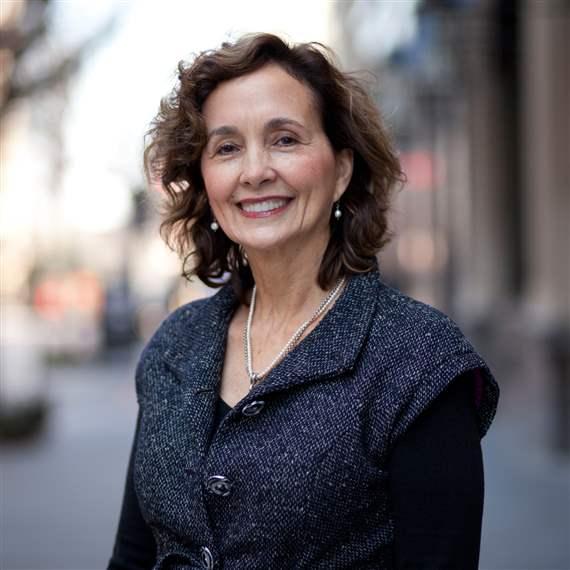By: Christine Vestal
FREDERICK, Md. – Donna Johnson, a working mother of four who lives in a quiet upscale neighborhood in suburban Maryland, is determined to thwart an insidious addiction treatment scam that’s spreading across the country.
It ensnared her son, then 21, in Florida five years ago when he was desperate for treatment for his addiction to opioid painkillers and heroin —and she was desperate to get him help.
Prompted by a man whom Johnson met online, she agreed to send her son to South Florida, where he cycled through more than two dozen sober homes and treatment facilities over four years, receiving little actual therapy. He relapsed every time he was discharged, only to be picked up by another facilitator and admitted to another sober living program.
Now, Johnson fears that some of the same people who preyed on her son are setting up shop in Maryland, and she wants state elected officials to outlaw the deadly business scheme before it takes root.
Florida enacted an anti-kickback law in 2017 that gave police the authority to crack down on drug treatment fraud, and since then, similar laws have been enacted in Arizona, California, New York, Tennessee, and Utah.
Here’s how the scam works: Seemingly caring people join recovery-related online chat groups, answer addiction hotlines advertised online or show up at fundraisers for addiction recovery. They typically say they’re in recovery themselves and are therefore uniquely qualified to help.
People with addiction and their families often don’t want to ask their doctors or pastors for help because they’re ashamed and want to hide their illness. So, turning to a stranger can be appealing.
To attract victims, “patient brokers,†as the scammers are known, typically offer free airline tickets and pocket money, according to prosecutors. They waive insurance deductibles and copays and tout the camaraderie and beach life the patients will enjoy in a place such as Florida. Parents, relieved that their son or daughter has finally consented to treatment, are eager to go along.
Past legal cases show the brokers can make initial commissions of as much as $2,000 per patient — and then rake in additional fees when they re-enroll the same patients after they relapse.
Within two to four weeks of a patient checking into a sober home where treatment is subpar or nonexistent, insurers may stop paying claims under standard protocols for that type of service, and the fraudulent operators dump their young clients on the street, prosecutors say.
That’s when the shuffle begins.
The patients, mostly in their 20s, typically start using drugs again, sometimes aided by cash they’ve received as a goodbye gift from the treatment provider. Some die of an overdose because their tolerance for the powerful drugs has plummeted. Many become homeless.
Others might be picked up by a friendly recruiter who helps them get into another sober home, where their insurer is obliged by recent federal laws — the Affordable Care Act of 2010 and the Mental Health Parity and Addiction Equity Act of 2008 — to start paying again after they’ve relapsed.
Past cases show that the cycle can continue until the insurance company stops paying on the patient’s 26th birthday when the Affordable Care Act allows insurers to drop dependent care coverage under a parent’s policy.
For Johnson, one of the first clues that something was amiss with the addiction treatment center she sent her son to in Florida was a $13,000 charge to her insurance company for drug testing that her son said he never received.
Excessive numbers of urine drug tests and widely varying prices for them are just part of the insurance fraud schemes perpetrated by many of the same operators who pay patient brokers to deliver customers, prosecutors say.
In Maryland, state Rep. Karen Lewis Young, a Democrat who represents Frederick, is drafting a patient brokering bill that she plans to propose in the next legislative session with Republican cosponsor Rep. Jesse Pippy, she told Stateline in an interview. The idea for the law, she said, came from Johnson.
“These marketers are looking for young people with good insurance and vulnerable parents who want to do anything they can for their children. They’re targeting them,†Young said.
“Who could be against outlawing patient brokering?†she asked.
Within two to four weeks of a patient checking into a sober home where treatment is subpar or nonexistent, insurers may stop paying claims under standard protocols for that type of service, and the fraudulent operators dump their young clients on the street, prosecutors say.
That’s when the shuffle begins.
The patients, mostly in their 20s, typically start using drugs again, sometimes aided by cash they’ve received as a goodbye gift from the treatment provider. Some die of an overdose because their tolerance for the powerful drugs has plummeted. Many become homeless.
Others might be picked up by a friendly recruiter who helps them get into another sober home, where their insurer is obliged by recent federal laws — the Affordable Care Act of 2010 and the Mental Health Parity and Addiction Equity Act of 2008 — to start paying again after they’ve relapsed.
Past cases show that the cycle can continue until the insurance company stops paying on the patient’s 26th birthday when the Affordable Care Act allows insurers to drop dependent care coverage under a parent’s policy.
For Johnson, one of the first clues that something was amiss with the addiction treatment center she sent her son to in Florida was a $13,000 charge to her insurance company for drug testing that her son said he never received.
Excessive numbers of urine drug tests and widely varying prices for them are just part of the insurance fraud schemes perpetrated by many of the same operators who pay patient brokers to deliver customers, prosecutors say.
In Maryland, state Rep. Karen Lewis Young, a Democrat who represents Frederick, is drafting a patient brokering bill that she plans to propose in the next legislative session with Republican cosponsor Rep. Jesse Pippy, she told Stateline in an interview. The idea for the law, she said, came from Johnson.
“These marketers are looking for young people with good insurance and vulnerable parents who want to do anything they can for their children. They’re targeting them,†Young said.
“Who could be against outlawing patient brokering?†she asked.
Within two to four weeks of a patient checking into a sober home where treatment is subpar or nonexistent, insurers may stop paying claims under standard protocols for that type of service, and the fraudulent operators dump their young clients on the street, prosecutors say.
That’s when the shuffle begins.
The patients, mostly in their 20s, typically start using drugs again, sometimes aided by cash they’ve received as a goodbye gift from the treatment provider. Some die of an overdose because their tolerance for the powerful drugs has plummeted. Many become homeless.
Others might be picked up by a friendly recruiter who helps them get into another sober home, where their insurer is obliged by recent federal laws — the Affordable Care Act of 2010 and the Mental Health Parity and Addiction Equity Act of 2008 — to start paying again after they’ve relapsed.
Past cases show that the cycle can continue until the insurance company stops paying on the patient’s 26th birthday when the Affordable Care Act allows insurers to drop dependent care coverage under a parent’s policy.
For Johnson, one of the first clues that something was amiss with the addiction treatment center she sent her son to in Florida was a $13,000 charge to her insurance company for drug testing that her son said he never received.
Excessive numbers of urine drug tests and widely varying prices for them are just part of the insurance fraud schemes perpetrated by many of the same operators who pay patient brokers to deliver customers, prosecutors say.
In Maryland, state Rep. Karen Lewis Young, a Democrat who represents Frederick, is drafting a patient brokering bill that she plans to propose in the next legislative session with Republican cosponsor Rep. Jesse Pippy, she told Stateline in an interview. The idea for the law, she said, came from Johnson.
“These marketers are looking for young people with good insurance and vulnerable parents who want to do anything they can for their children. They’re targeting them,†Young said.
“Who could be against outlawing patient brokering?†she asked.
















